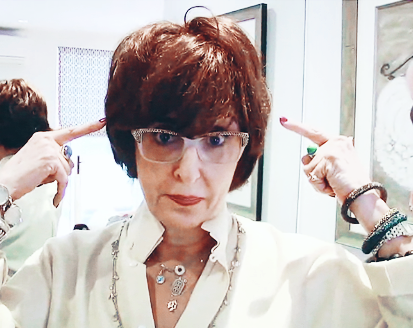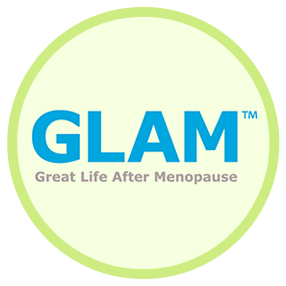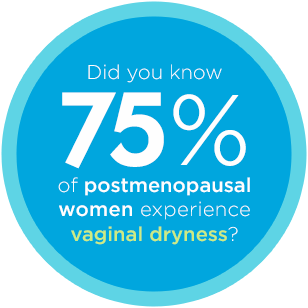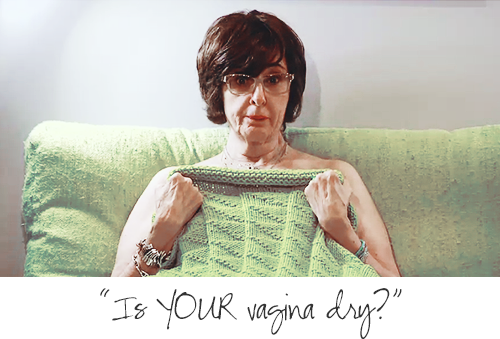I Won’t Let My Changing Body Keep Me Down
The way I see it, we’ve got two clear choices whenever we’re confronted with (icky) changes in our bodies as we age:
A) Approach them head on, with a dose of humor, and deal with them or B) Ignore them and permanently sulk.

I’ve opted for A. When I entered the postmenopausal era, changes to my body came fast and furiously. The once beautiful, curly hair on the top of my head was thinning. Examining my balding scalp, with horror, every time I looked in the mirror, didn’t strike me as something I wanted to do for the rest of my life. Instead, I decided to get a fabulous hairpiece to cover the only thin thing on my body.
My tummy started pooching out. I could shriek every time I passed the full-length mirror, undressed, or I could cut back on the carbs, as well as wear clothes that helped me minimize the pooch, which is exactly what I did.
And, heaven help me, my vagina also was getting pretty dry. I could suffer in silence and tell David I had an ongoing headache or I could actually bring it up at my next visit to the doctor and see if there were any treatments. I did and there were.

As many of you already know, I’ve been part of an alliance for the last year, called GLAM™ (Great Life After Menopause), sponsored by Novo Nordisk, a company that cares very much about women’s health and wellbeing.
GLAM™ is made up of outspoken women, like me, who want to empower women like you  (bet you didn’t know that 75 percent of us, postmenopausal, have vaginal dryness?) to talk to your partners, talk to your health care providers, talk to your friends and know that there are therapies to take care of your ED.
(bet you didn’t know that 75 percent of us, postmenopausal, have vaginal dryness?) to talk to your partners, talk to your health care providers, talk to your friends and know that there are therapies to take care of your ED.
Yes, you read it right. I said your ED. The other ED, as in Estrogen Deficiency, the cause of vaginal dryness in the first place. Besides, isn’t it time for the men to stop hogging all the attention with their ED?
And now you can turn to a fun new website, aptly called The Other ED, to learn every single thing you need to know about menopause, estrogen and vaginal changes. Yep, you also read that right. TheOtherED.com makes it really enjoyable to learn about a condition that isn’t especially amusing when you’re experiencing it. The site is smart, it’s great looking and it’s fun. Just like you!

As I said at the top of this blog, you can be woebegone (a cool word, eh?) about the changes in your body. Or you can confront them, with a dose of good cheer. Start doing the second, right this minute, on TheOtherED.com. Ladies, you owe it to yourselves!



